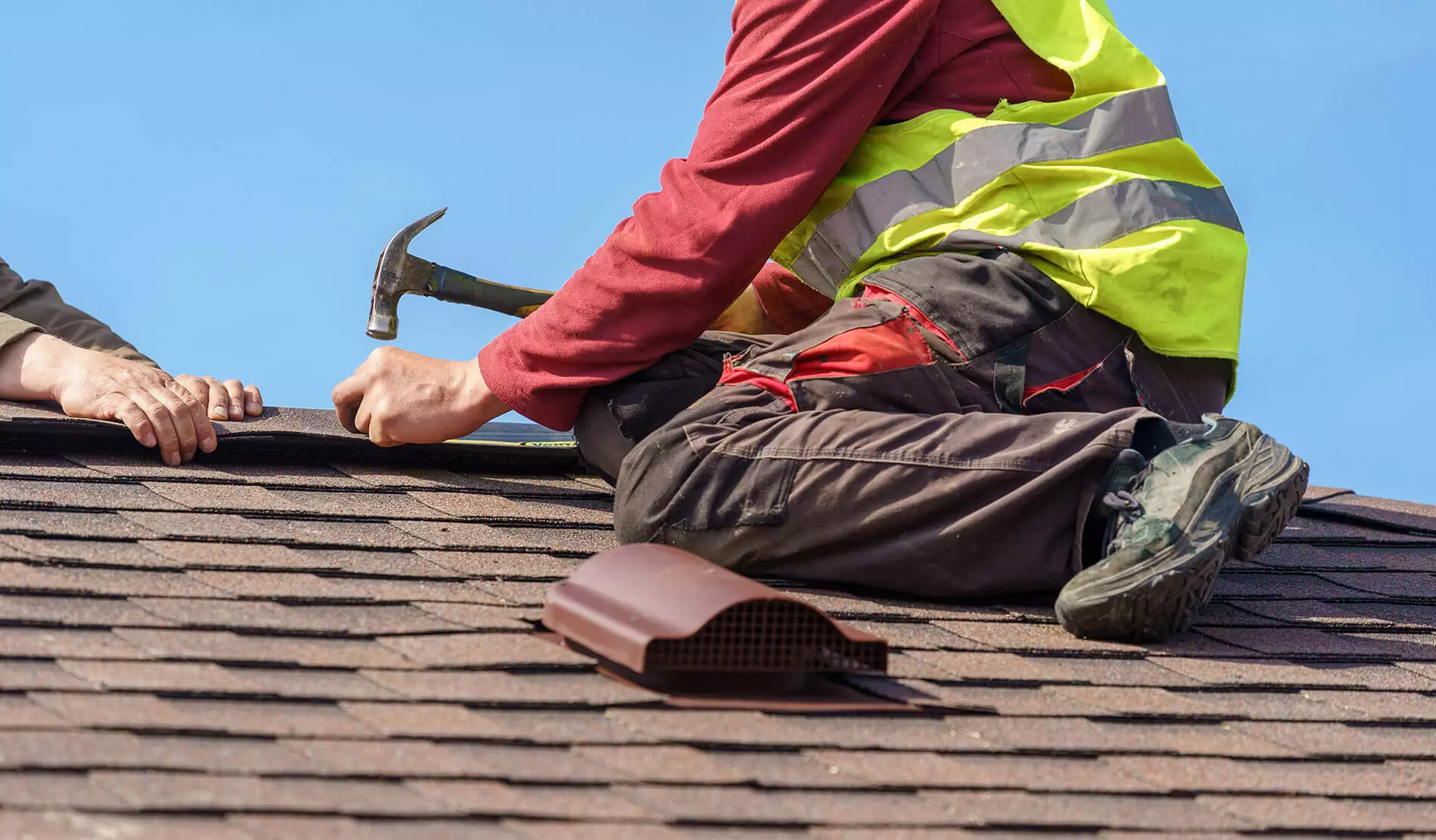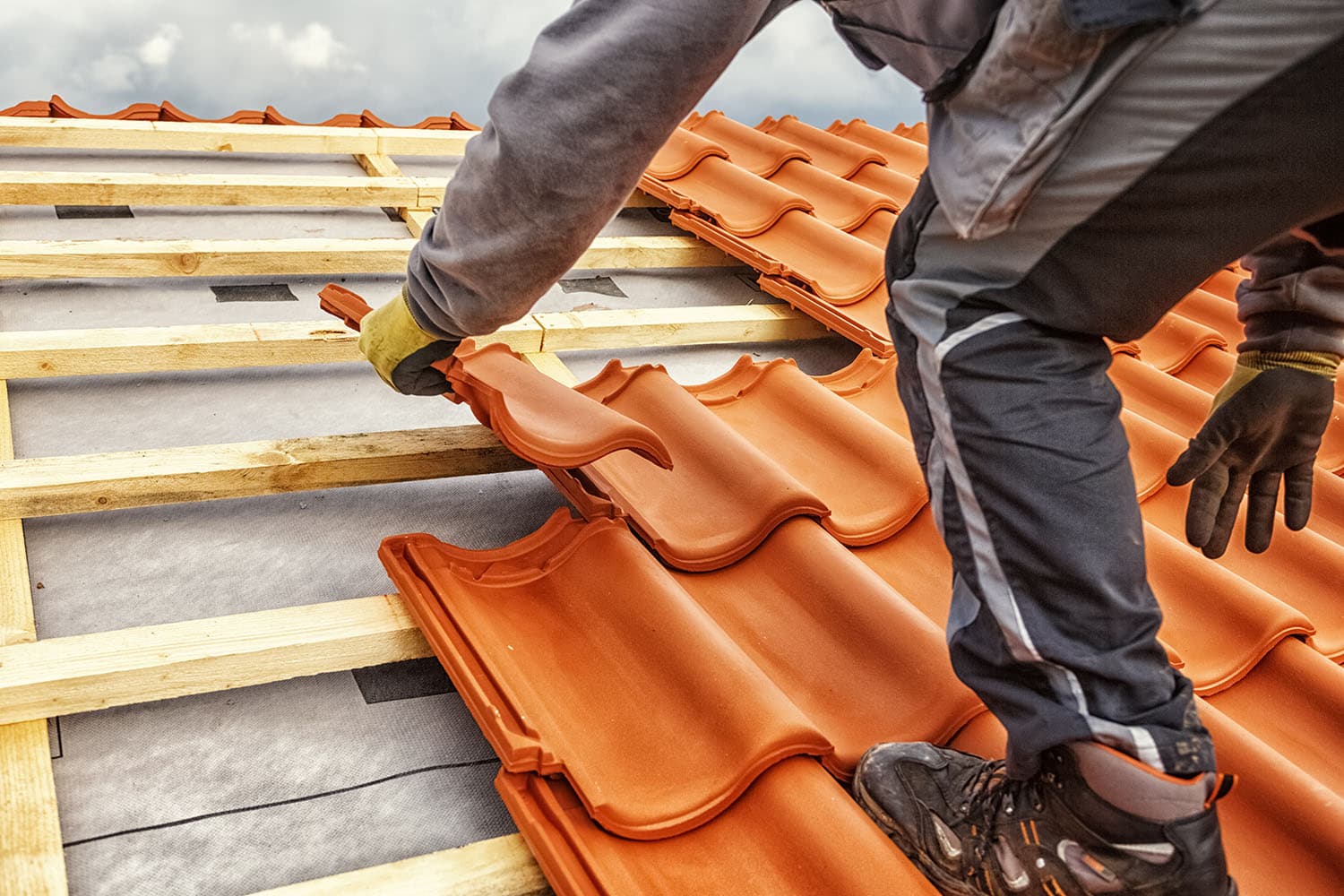Protect your home with the help of a licensed Roofing Contractor for quality workmanship.
Protect your home with the help of a licensed Roofing Contractor for quality workmanship.
Blog Article
Exactly How to Examine Different Roofing Alternatives for Your Building Demands
Assessing roof options for your structure requires a thorough strategy that takes into consideration different factors such as the meant usage of the framework, regional climate problems, and material characteristics - Toledo Roofer. It is crucial to consider the advantages and downsides of different roof covering types, from asphalt tiles to steel and clay ceramic tiles, while additionally factoring in initial expenses and long-lasting maintenance.
Assessing Your Structure's Requirements
To successfully evaluate roof alternatives, start by thoroughly examining your building's demands. Begin by taking into consideration the structure's meant use, as various structures might necessitate differing roof specs. As an example, household roof coverings frequently prioritize visual appeals and insulation, while industrial buildings may concentrate on longevity and load-bearing ability.
Following, assess the regional climate conditions that will impact roof covering performance. Variables such as temperature variations, precipitation degrees, and wind patterns can influence product choice and design. A roof system that excels in a temperate climate may not do as well in locations susceptible to hefty snowfall or extreme heat.
Furthermore, assess the architectural integrity of your building. Guarantee that the existing structure can sustain the picked roof covering materials, especially if thinking about much heavier options. It is likewise critical to evaluate any kind of neighborhood building ordinance or guidelines that might dictate certain requirements for roof covering systems.

Contrasting Roof Products
Once a thorough assessment of your structure's requirements has actually been completed, the next action involves comparing various roof covering materials. Each product provides distinct benefits and downsides, making it necessary to straighten your choice with your certain requirements and circumstances.
Asphalt roof shingles are commonly recognized for their cost and convenience of installation, making them a prominent option for property buildings. On the various other hand, metal roof, recognized for its resilience and long life, can stand up to severe weather condition problems but may feature a greater initial financial investment.
Clay and concrete floor tiles supply exceptional thermal insulation and aesthetic appeal, specifically for Mediterranean-style style, yet they require an even more robust structural support due to their weight. Timber drinks offer a natural look and great insulation properties but might require extra maintenance and are vulnerable to fire hazards.
Reviewing Expense and Budget
Examining your roof choices requires a cautious analysis of expense and spending plan factors to consider. The general budget plan for a roofing job comprises several elements, including material expenses, labor expenses, upkeep, and potential lasting savings. It is necessary to develop a clear budget plan before discovering specific roof covering materials, as this will assist the decision-making procedure and assist you stay clear of overspending.
Begin by getting quotes from multiple contractors to understand labor costs in your area. Guarantee that these price quotes consist of all required solutions, such as removal of the old roofing, installation, and any added attributes, like insulation or air flow improvements - Roofer. Next off, evaluate the price of various roofing products, thinking about both preliminary installation expenses and anticipated life expectancy

Understanding Power Performance
Energy efficiency plays a critical function in the selection of roof products and systems, substantially affecting both energy consumption and general convenience within a building. A well-chosen roof covering can enhance thermal efficiency, decreasing the demand for home heating and cooling down systems, which in turn reduces energy costs and decreases ecological influence.
When assessing roof covering alternatives, think about materials that mirror rather than absorb warm. Furthermore, appropriate insulation and ventilation are essential to maximize the energy effectiveness of the entire roofing system.
An additional vital variable is the roof's longevity and maintenance demands. Sturdy materials that call check here for much less frequent substitute add to long-term energy savings. The power effectiveness of a roof covering system can likewise be examined with its compliance with established sustainability scores such as Power CELEBRITY or LEED.
Thinking About Visual Charm
A roof's visual appeal significantly affects the total appearance of a building, matching its building style and boosting curb appeal. Roofer. When evaluating roof alternatives, it is necessary to consider how the picked material, color, and layout will certainly balance with the existing structure and neighborhood. A well-designed roof can boost also the easiest of structures, changing them into visual focal points
Various roof products offer different visual qualities. For example, standard tiles might stimulate a classic beauty, while steel roofing can pass on a modern-day, streamlined look. Furthermore, the shade of the roofing material plays a vital click reference role; lighter tones can make a building show up more spacious, while darker tones might develop a cozier setting.
Additionally, architectural aspects, such as dormers and eaves, can enhance the roofing's visual impact. It is a good idea to seek advice from with expert designers or engineers to make sure the chosen roofing option lines up with the general style intent. Ultimately, a roof must not just provide functional benefits however also add favorably to the building's aesthetic, mirroring the proprietor's preference and the personality of the surrounding setting.
Verdict

Report this page